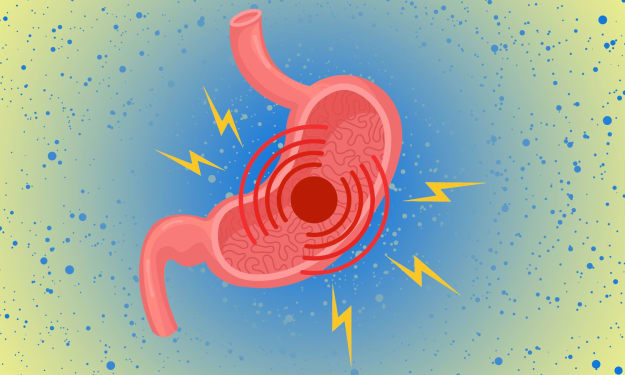5 "Bad" Carbs You Should Be Eating When You Have Diabetes, According to a Dietitian
Carbs can be healthy when you have diabetes.

Despite what you may have heard, not all carbohydrates need to be avoided when you have diabetes. In fact, some carbs that have been labeled as “bad” or off-limits may actually offer some benefits if you’re actively trying to manage your blood sugar.
Having diabetes means your body doesn't make enough insulin or can't use it as well as it should, resulting in too much blood sugar staying in your bloodstream. More than 37 million Americans have diabetes, according to the American Diabetes Association.
11 Carbs People with Diabetes Should Be Eating, According to a Dietitian
Managing diabetes effectively involves a combination of dietary modifications, regular physical activity and consistent monitoring of blood glucose levels. In certain cases, your doctor may also recommend taking certain medication to help regulate glucose levels.
Including Carbs When Managing Diabetes
There isn’t a macronutrient that is as misunderstood as carbohydrates. With some claiming that carbs should be extremely limited and others calling carbs A-OK, the conflicting information can leave a person scratching their head.
According to the ADA, carbohydrates can (and should) be a part of a diabetes-friendly diet, as long as the right carbs are emphasized and others are limited—or avoided, depending on your personal needs.
Simple carbohydrates, often found in ultra-processed foods like white bread and sugary beverages, are quickly absorbed into the bloodstream, which can lead to rapid spikes in blood glucose. On the other hand, complex carbohydrates, often rich in fiber and found in whole grains, fruits and vegetables, are digested more slowly, providing a steady release of energy and preventing sharp peaks in blood sugar.
What Is a Complex Carbohydrate?
This is not to say that simple carbohydrates should be completely avoided, but they should be consumed in moderation and balanced with other nutrients. Ensuring a diet rich in complex carbohydrates and fiber can help maintain steady blood sugar levels and overall health if you have diabetes.
"Bad" Carbs You Should Be Eating When You Have Diabetes
1. Potatoes
“White” carbs tend to get placed on the “no-no” list for those with diabetes. But potatoes are a go. These are starchy vegetables that, when consumed with the skin, provide an impressive amount of fiber. (Each baked medium russet potato provides 4 grams of fiber, per the USDA). These spuds also contain protein, another nutrient that may help support healthy blood sugar levels, according to the 2022 edition of Advances in Food and Nutrition Research.
If you have diabetes, consider choosing potatoes that are prepared in heart-healthy ways, such as baked rather than deep-fried (like french fries). That’s because foods like fries typically are rich in saturated fat and sodium, and having diabetes increases your risk of developing heart disease, according to the National Institute of Diabetes and Digestive and Kidney Diseases. Oh and don’t forget to eat the fiber-packed skin, too.
2. Pasta
Yes, pasta is a “white” refined carb. But unlike more “indulgent” white carbs like doughnuts and cookies, there’s evidence that pasta starch digests slower, helping to blunt the blood sugar response.
A 2022 study published in the Journal of Nutrition examined the blood glucose response from consuming three different foods—pasta, bread and couscous—made of semolina wheat and water. Results found that pasta, both spaghetti and penne, had lower blood glucose and insulin response than bread or couscous, even though they were made from the same ingredients and consumed in equal amounts. Additionally, pasta required more chews than bread or couscous, and also resulted in larger particles after chewing and digestion. This suggests that it’s the pasta’s structure that delays digestion and tempers the blood sugar response more so than bread and couscous.
Ultimately, your portion matters. For people who have diabetes, eating pasta within their recommended total carb intake was not linked to worsening blood glucose control, fat gain or cardiovascular risk factors, according to 2019 data in the journal Nutrients.
A 2-ounce serving of pasta makes about 1 cup of cooked pasta, which is about the size of a baseball. The key is to enjoy an appropriate serving of pasta with vegetables, lean protein and healthy fats, like olive oil.
3. Dried Fruit
Dried fruit is often thought to be too sugary to be allowed on a diabetes-friendly diet. But certain dried fruits that are not made with added sugars can be a nutritious and convenient addition—just watch your portion sizes.
Prunes, or dried plums, are one example of a dried fruit that can be a part of a diabetes-friendly diet. Prunes contain fiber, a nutrient that may help support healthy blood sugar. Plus, they have a low glycemic index, per Nutrition Research in 2019, which suggests they have a smaller impact on blood sugar levels compared to foods with a high glycemic index. The authors also point out that prunes may also enhance insulin sensitivity due to their high sorbitol content.
Can You Eat Dried Fruit If You Have Diabetes?
4. Carrots
Perhaps because they are naturally sweet, in some circles carrots are thought of as a food to avoid for those with diabetes. But despite their sweet taste, carrots are not high in sugar. One medium carrot contains approximately 2 grams of dietary fiber and only about 3 grams of natural sugar, according to the USDA, two features that may help support blood sugar control. Carrots are also high in antioxidants and vitamins, particularly vitamin A, contributing to overall health.
5. Cereal
Cereal comes in a wide range of varieties, from sugar-packed choices chock-full of artificial colors and flavorings and zero fiber, to whole-grain, fiber-rich options.
As long as your cereal is made with whole grains and it is free from added sugars, generally, you should be able to enjoy a serving if you are managing diabetes. And if your cereal is made with oats, you may get even more of a health benefit.
Oats are a highly beneficial food for people with diabetes. This whole grain has a fiber called beta-glucan, known for its ability to lower both blood sugar and insulin levels. A 2021 meta-analysis published in the Journal of Nutrition showed that the consumption of oat flakes was associated with significant reductions in post-meal blood glucose.
Pro tip: When enjoying cereal while managing diabetes, try adding flaxseed, chia seeds or nuts to your bowl to include more fiber, healthy fats and protein to potentially help support blood glucose control.
Bottom Line
For people with diabetes, carbs aren’t the enemy. And some carbs that are traditionally labeled as “bad” are actually OK for many people who have diabetes, especially when enjoyed in an appropriate portion and as part of a balanced and healthy diet. Since different people have different needs, it is important to always talk to your health care provider to ensure these foods are appropriate for you.






Comments
There are no comments for this story
Be the first to respond and start the conversation.